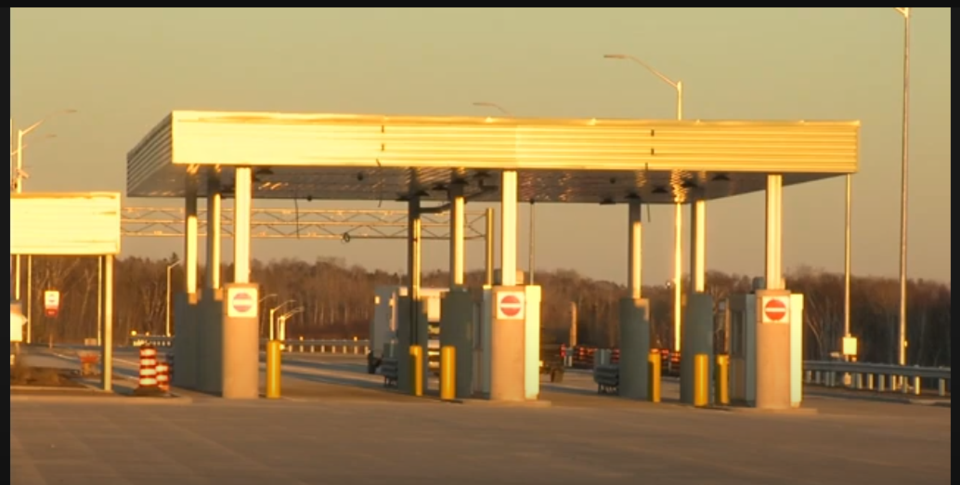THUNDER BAY — Co-founder of Truckers for Safer Highways, Travis McDougall, weighed in on a recent report from the Insurance Bureau of Canada (IBC), which stated that urgent action is required for commercial truck driver training.
Over the past year, McDougall has been raising awareness about new commercial truck drivers who have received inadequate training before being pushed out onto the treacherous Northern Ontario highways.
“It's good news for us in the sense that everything we're saying is again proven to be right.
"We're not just truck drivers out here saying we see a problem; that's the impression we kind of get when we reach out to politicians because they come with the common response that Ontario has some of the safest highways in North America and we certainly don't feel that way travelling on these highways."
Although McDougall said the IBC’s report is more for insurance agencies to calculate the cost of insurance for their members, he did point out that the IBC's report provided further evidence that the lack of training for new commercial truck drivers is a huge safety concern.
The IBC report stated that drivers with less than three years of experience have a greater chance of being involved in a collision. Furthermore, “those collisions involving heavy loads or dangerous goods tend to be more severe and have potential for greater damage. As a result, the level of required liability coverage increases when these goods are transported, affecting premiums.”
The report also stated that Canada has yet to implement a mandatory entry-level training program for drivers, and the quality of training varies by school.
McDougall said the report tallied the number of collisions in each province, and the results highlighted the two biggest concerns Truckers for Safer Highways had been advocating for change in Queens Park.
According to the Ontario Provincial Police Northwest Region, officers responded to 500 commercial motor vehicle collisions in 2023.
So far in 2024, the year-to-date numbers as of April 9 show officers in the northwest region have responded to 152 commercial motor vehicle collisions.
“There is not sufficient training for new truck drivers and the enforcement happening, not just in Ontario, but across the country. There is not sufficient training to ensure that all drivers are following the rules and regulations that we're required to abide by,” said McDougall.
He explained that these collisions can be avoided with mandated training.
McDougall highlighted the differences in driving conditions between southern and Northern Ontario.
For example, multi-lane highways present far different challenges than in the north, where drivers will experience twin highways in parts of the 11/17 and single lanes in others. But the trickiest difference for an inexperienced driver is the northern terrain.
“The different terrains that we see in Northern Ontario where you're suddenly climbing or you're slowing down and then speeding up again. And then you don't see the sudden weather changes in southern Ontario. You get the lake effect snow but you don't get the severe cold temperatures that it significantly impact the truck, McDougall said.
"But you're also on roads that are not very forgiving, and you're travelling through more so communities where their main roads are this highway, whether it's highway 11 or 17, but it's the main transportation route, and it's also the main roads for many communities in the north.
“There's a lot more that can be affected in the north, and it seems a lot of drivers aren't prepared for it. There are also very little options for drivers to park when they're tired or when the weather changes and they don't feel comfortable being on the highway.
"A good example is between Hearst and Long Lac - there are very little spots to park a truck. And if you want to park because you're tired, there's no choice to do so when you get in that stretch. Or you leave Hearst, and the weather's great, and before you get to Long Lac, you could be an hour into the drive, you're now in a blinding snowstorm.
"You can't see anywhere you want to park. You don't feel comfortable because you're a fairly new driver, but there's nowhere to stop.
“That's where we're seeing a lot of these uncomfortable inexperienced drivers are just ending up in collisions when they could have parked.”
McDougall pointed out another hazard for commercial truck drivers along Highway 11/17: the lack of open weigh stations.
He stated that during his weekly route through Northern Ontario, not one weigh station is open between Barrie and the Manitoba border.
McDougall noted that the new $30 million state-of-the-art inspection station near the Shuniah Township has not been open once since its grand opening in March. He also said that his colleague has yet to see it open, too.
“It's very frustrating because there is no way for trucks to legally get around it to avoid it. There are no truck routes to go around that scale. It's positioned in a very good spot. If it's open a lot, there would be a lot of infractions that they could catch - anyone trying to run a vehicle that may not be up to safety specifications or safety regulations or their log books aren't right.
"We're seeing drivers right now that are getting stopped by the OPP that aren't licensed properly. This stuff can all be caught at these inspection stations if they use it,” said McDougall.
When questioned about the IBC report and the new inspection station, the Ontario Ministry of Transportation did not respond by deadline.
